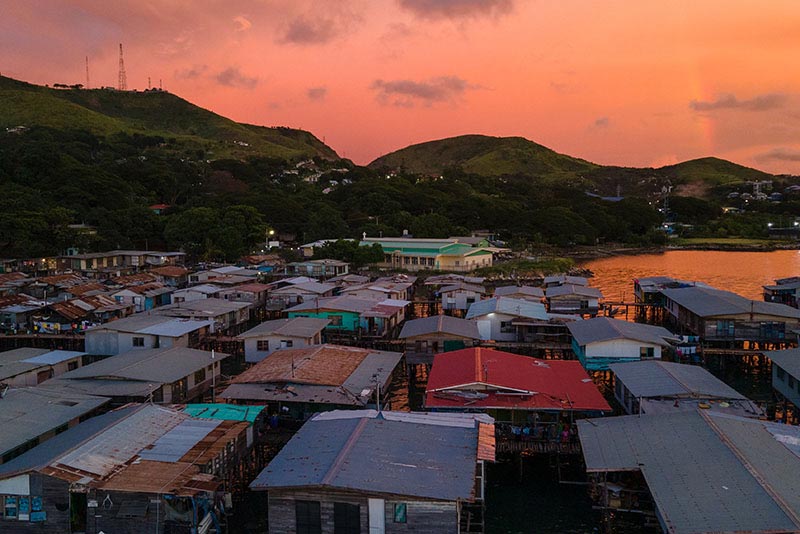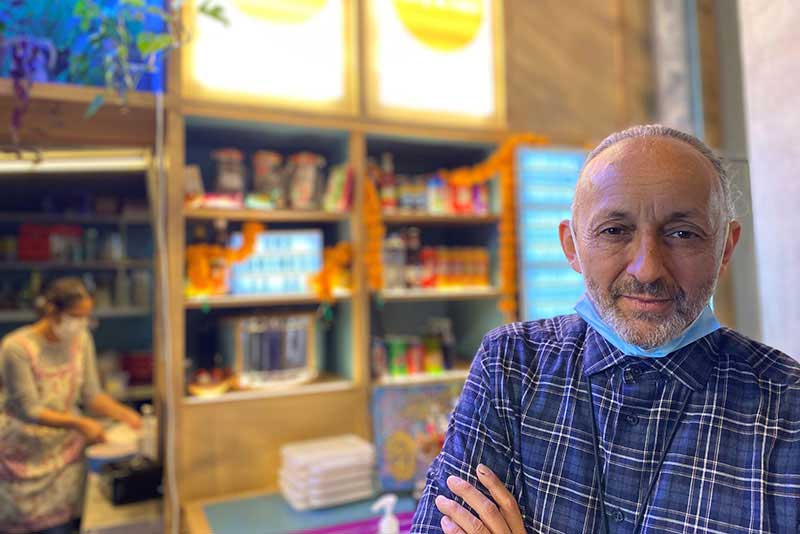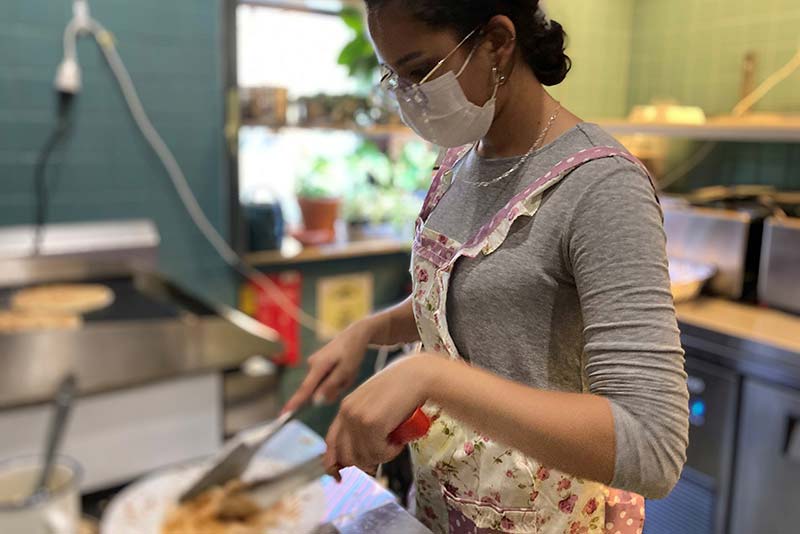By Karlis Salna
SYDNEY—For a long time, this part of the world has kept the COVID-19 virus at arm’s length. But in the island nations of Fiji and Papua New Guinea, the number of infections has flared recently—and that has set people on edge across the region.
The numbers in Papua New Guinea so far—about 130 deaths and 13,000 infections—pale in comparison to the devastating scenes in India. Still, it’s another reminder that this remains a global emergency, and that COVID-19 will remain a constant threat until the world is vaccinated.
And it underscores that in the shadow of a pandemic, anything can change suddenly. I know this firsthand. More than a year ago, my mother called to tell me she had been diagnosed with cancer and had a few months to live. In December 2020, when I was visiting her in Newcastle, a two-hour drive to the north, Sydney experienced a COVID-19 outbreak that prompted a lockdown. It prolonged my stay and forced me to miss Christmas with my wife and son, but it gave me more time with my mother. She died in January, on my son’s second birthday.
But overall, I feel fortunate, even guilty, that the pandemic has not affected us significantly. It was COVID-19 that brought me back to Australia from Indonesia, whereas many other people remain separated from friends and family and have experienced tremendous loss. I can go to the beach, to restaurants, take a walk in the park. However, in Papua New Guinea, and especially in India, the situation is dire.
A “wake-up call”
When I spoke to Travers Chue, who runs a string of cafes in the capital of Papua New Guinea with his brother, he told me that the recent spike in cases was a grim wake-up call.
“The second wave has been far more contagious. It spread much quicker,” he said. “You watch what’s going on in India, and Papua New Guinea has to look at it as if we’ve been given a head start, knowing what could happen with a second wave and a third wave if we don’t do anything about it.”

In Port Moresby, the capital of Papua New Guinea, businesses have been hit hard by the pandemic. Photo by: Roberto Garcia/Shutterstock
The pandemic has already taken an enormous financial toll in the region, with Pacific Island economies the hardest-hit among East Asia and Pacific countries. Collectively, the economies contracted 11.3 percent last year. The economic recovery is forecast to be markedly uneven, according to the latest World Bank estimates, with Pacific Island countries together projected to notch growth this year of just 1 percent.
When the virus first hit Papua New Guinea last year and the economy started to nosedive, the Chue brothers saw revenue slashed by about 50 percent. Yet the brothers, who employ about 100 people, resisted shuttering their businesses.
“Last year was a very, very stressful year in the sense that the responsibility is huge [and] it’s not just about yourself,” Chue said. “I have an extended family of about 100 people that I need to take care of and ensure that the business survives so that they can survive too. It was a huge burden.”
For the Chues, and many business operators like them, the impact from the pandemic could be long lasting.
“We lost a lot of money in the first half of last year and then in the second half we were able to get back to breaking even because things were looking a little brighter, people forgot a bit about COVID,” Chue said. “It hit again in February and things have been really bad since then because COVID numbers have really picked up in PNG. That hit was worse than the hit we had last year.”
Sydney’s story
Papua New Guinea is less than 100 miles north of Australia, but it’s a vastly different story here.
The news earlier this month of two cases of community transmission in Sydney, Australia’s largest city, raised tensions. Restrictions on gatherings were once again put in place and face masks made mandatory on public transport. Singing and dancing in public and drinking alcohol in bars while standing up were banned. However, the country remains largely COVID-free.
Australia’s economy has become “red hot” by some accounts, emerging from the depths of a pandemic-led recession. House prices are surging, and unemployment is falling faster than expected.
But there are some troubling incongruities within Australia’s story of economic recovery.
Ravi Prasad runs a small café at the southern end of a busy street that runs through Newtown, a suburb in Sydney’s inner west. He also has a social enterprise catering business and eatery called Uma, in Darling Square, part of an entertainment precinct in Sydney’s central business district. He exclusively employs asylum seekers and refugees, who produce foods from their countries of origin.

Ravi Prasad at Uma, where he employs asylum seekers and refugees as chefs. Photo by: Karlis Salna
“The stress on the hospitality sector has been immense,” he told me, pointing out several other restaurants near Uma that in recent months have gone bust. At best, the catering business is now only 40 percent of what it was pre-COVID, he said. “It will survive, but to what extent remains unclear.”
Adding to the stress for many of Prasad’s workers is that they are from countries where COVID-19 is running rampant. “They still make the best of every day, but they do so, many of them, in the knowledge theirs is a house built on moving sand. There’s no strong foundation they can put down,” Prasad said. “The fragility of their situation has been heightened by the pandemic.”
One example is Shaziah Crowie, originally from South Africa. “I lost a lot of family members because in South Africa the hospitals can’t keep up with [the pandemic],” she said. “I feel fortunate being here in Australia. We’ve managed to get out of the lockdown a lot earlier than most of the rest of the world but I still feel heartbroken, especially for the people in India right now… and I don’t know when I’ll get to see [my family] again.”

After Shaziah Crowie lost her job in retail because of the pandemic, she found work at Uma. Photo by: Karlis Salna
More than a year into the pandemic, as vaccines are being rolled out and many economies are reopening, the disparate, ruthless nature of this deadly disease has never been more apparent.
“It will be a little while before the world gets back to some kind of normal. Maybe we’ll never live the same way as we did before,” said Chue, in Papua New Guinea. “But business needs to flow and the borders need to re-open. And the only way for that to happen is for us all to get vaccinated because COVID is not going to go away.”
Karlis Salna is IFC Communications Officer for Indonesia, Malaysia, Timor-Leste, and Pacific Islands.
Published in May 2021
